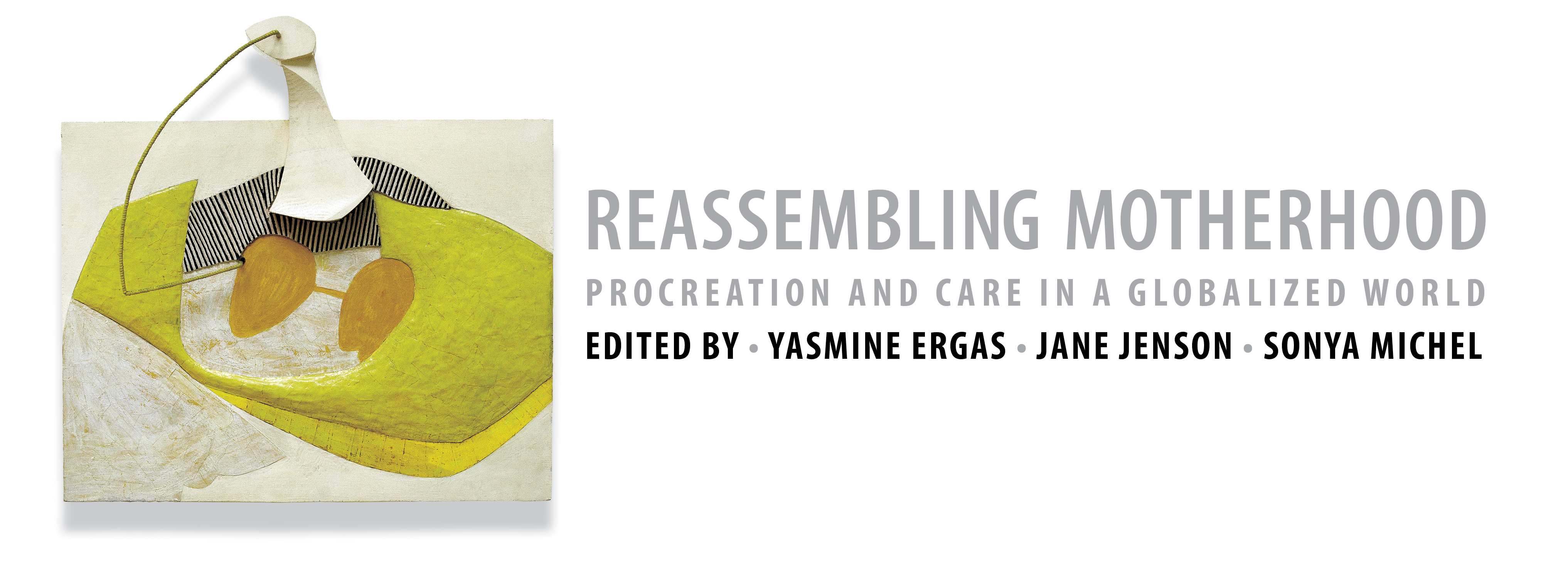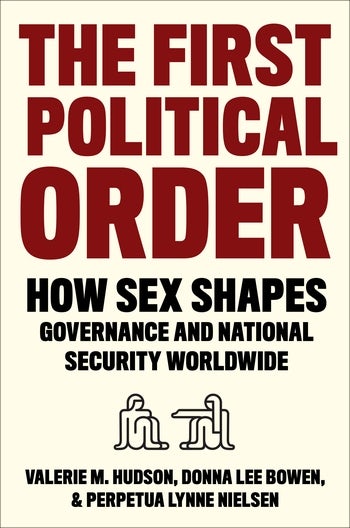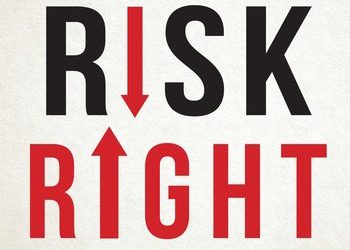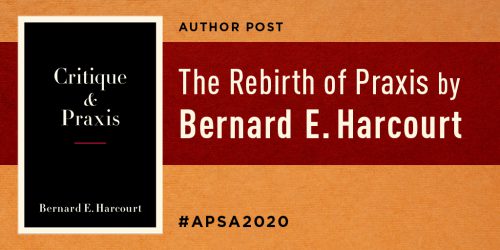Ten Tips on How to Make a Great Podcast
Siobhán McHugh
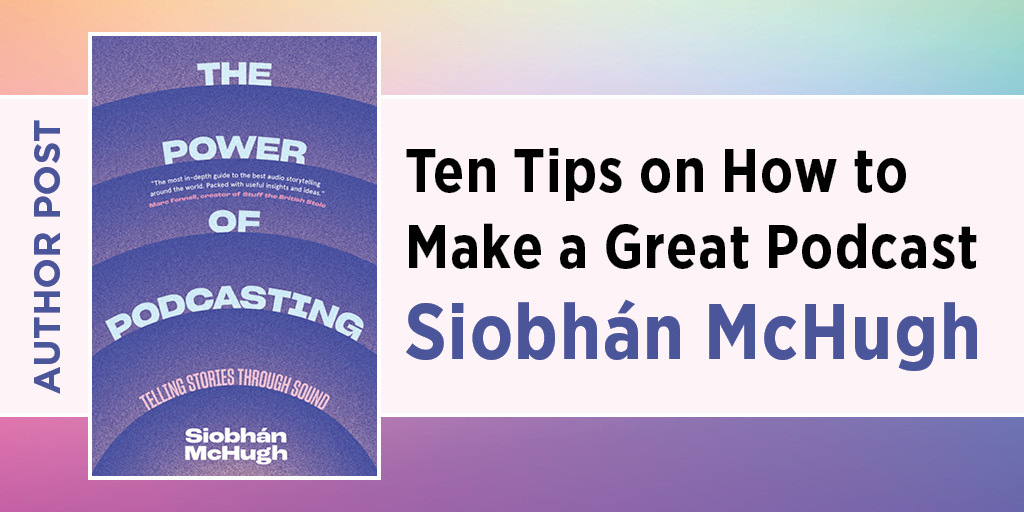
Academics and educators are increasingly turning to podcasts to disseminate research and advance teaching and learning. Although it’s relatively easy to make a podcast compared to other media formats, it’s much harder to make a great one! There are over five million podcasts competing for our ears, so here are some tips to help yours attract and retain an audience.

Siobhán McHugh with host and co-creator Patrick Abboud at an early production meeting for The Greatest Menace. The post-it notes are colour-coded for narrative elements.
1. Podcasting is an audio medium.
(Yes, some people listen to podcasts on YouTube, and some podcasters post videos of their shows, but audio is core). So understand audio’s strengths and weaknesses. Audio is linear and temporal: it exists only in real time. That makes timing an essential component. If your show is too dense, with no pauses to let things sink in, listeners will zone out. Use music and “stings” as punctuation to highlight a point or switch direction. A pause is like a period; a music bridge signals a new paragraph.
2. The pillars of audio (and podcasts) are voice and sound.
Your voice tells us not just what you think (your words), but how you feel about it (your tone) and who you are (your accent, age, and personality). Be real: either improvise (from notes) or write a script that reflects how you actually speak. Using contractions such as “we’re going,” not “we are going,” will help you sound natural, not stilted. This confers authenticity and builds empathy.
3. Use music to set mood and regulate pace.
Make sure it’s tonally apt, not chosen by algorithm. It should not compete with the content. And it should begin and end in the right places for the dramatic or emotional impact you want.
4. Use sound to add imaginative and affective depth.
Ambient sound—like birdsong, an airport, or a sporting event—can evoke pictures in the listener’s mind and take them instantly to a place or time. I once heard a podcast in which two academics discussed a guest’s journal article on how to interpret infant vocalizations. For thirty minutes, the author earnestly described the range of vocalizations in technical language. A five-second recording of a baby gurgling or crying from tiredness or hunger would have gotten the message across a thousand times more effectively and engagingly.
5. Podcasts do personal really well.
If your topic offers a chance to do in-depth interviews, where subjects can describe and reflect on their lived experience, that’s audio gold. Ask pertinent questions, listen with rapt attention, and know when to keep quiet, and you’ll have the bones of a great podcast right there.
6. Intimacy is the most sought-after currency of podcasts.
It derives partly from the power of audio to connect with our imagination and our emotions as well as our brain, much more creatively than, say, the prescribed pictures of television. The sense of intimacy can be heightened if you listen alone, as most do, and heightened further if you listen via headphones. Studies show that people listening to the same content via headphones, not speakers, retain it more.
7. Production quality.
Audio has its own grammar and logic. Learn the basics of a good quality recording: simply placing the microphone too far away from the speaker can squander that much-vaunted intimacy. Wear headphones when recording so you can troubleshoot. You might, for example, turn levels down to avoid distortion. Learn to edit: most interviews benefit from being filleted, and editing speech is not much harder than cutting and pasting in Word. Listen back critically to your show—in real time—to see where it drags or gets repetitive, and cut accordingly. It’s like doing a final copyedit to a print manuscript. Adding theme music at the start and end, plus a few acoustic “stings” to signal new sections, is like formatting a longform article into an introduction, sections, and a conclusion: it adds pleasing shape.
8. Story.
Eighty percent of podcasts are “talk,” but even chat can be more engaging when it has a beginning, a middle, and an end—that is, when it has a story, rather than self-indulgent banter that doesn’t know when to stop. In The Rest is History, the historian hosts joust and joke, but they also stick to a cracker of a story, ad-libbed from copious research. Episodic narrative podcasts, whether investigative journalism (Wind of Change, S-Town, The Greatest Menace*); memoir (Goodbye to All This); or fiction (Homecoming, Passenger List) at their best are an art form as skilled as any web series. They rely on a plotty story (what happened); 3D characters (who it happens to, developed through word pictures and scenes); strong script or narration (a relatable host with an overt connection to the story); tight narrative structure; and, the one most newcomers overlook, evocative storytelling-through-sound (those scenes that yank us to that street, the mournful seagull that places us by the Atlantic). Also, it’s a collaborative art, and takes massive amounts of time to do well, so find the funding. (About $250 to $300,000 per series, or c. $50,000 per hour of narrative podcast is a realistic unit cost for premium shows: absurdly cheap compared to TV.)
9. Publication.
Before you make your podcast, think about your potential audience. Who do you want to hear this? What niche are you filling? Now, via social media and your networks, alert those people to your existence. First contact is usually visual: they will see your podcast’s artwork on their phone or other device, so make sure it is striking and apposite. Some people color-code, blue for corporate themes, yellow for pop culture, and red for true crime. Ponder a good title and tagline, and add show notes and a website that amplify your content. Then engage with your listeners: podcasting is two-way communication, even if that communication is asynchronous. Another of its great strengths is the parasocial relationship listeners develop with a host, a bond of trust and companionship much valued in an age of misinformation. Answer listeners’ questions and reply to their comments. If a listener community builds, talking to each other on social media, you’ve hit the jackpot.
10. Listening as emancipation.
I got loud applause at a media conference when I summed up podcasting as “God’s gift to ironing.” Most listeners multitask, a boon in a screen-driven world, as we acquire knowledge or immerse ourselves in story while commuting or walking the dog. But—especially if you are setting audio texts for students—it is important to learn how to listen critically. Ask students to note which parts made them get emotional and to think about why. Where did their attention wane? Which “character” did they warm to or dislike? How did they picture the characters? I once played an award-winning audio feature, Dreaming of Fat Men, to a class. In it, producer Lorelei Harris invited self-described fat women who loved food to come into the studio, have a fabulous feast, and interact. The women describe with rich sensuality, irony, and humor their enjoyment of food, life, and each other’s company. My students listened avidly. At the end, one said: “They don’t sound fat.” It was a simple but profound reminder that audio can liberate us from preconceptions and judgment, conscious or not. Audio doesn’t even need you to be literate. Podcasts can harness these qualities to be a democratising and inclusive force in the world. So go start a podcast—just like books, there can never be too many!
Siobhán McHugh is the author of The Power of Podcasting: Telling Stories Through Sound. She is honorary associate professor of journalism at the University of Wollongong and of media and communications at the University of Sydney. Narrative podcasts she has coproduced have won seven gold awards at the New York Festivals Radio Awards, among other accolades.
*Disclosure: Siobhán McHugh was consulting producer on The Greatest Menace, a podcast about a “gay prison” experiment in Australia. It won Best Social Justice Podcast at the 2022 New York Festivals Radio Awards, a Walkley Award for Excellence in Journalism (Australian equivalent of a Pulitzer) and was a finalist for the European Broadcasting Union’s Rose D’Or prize.


